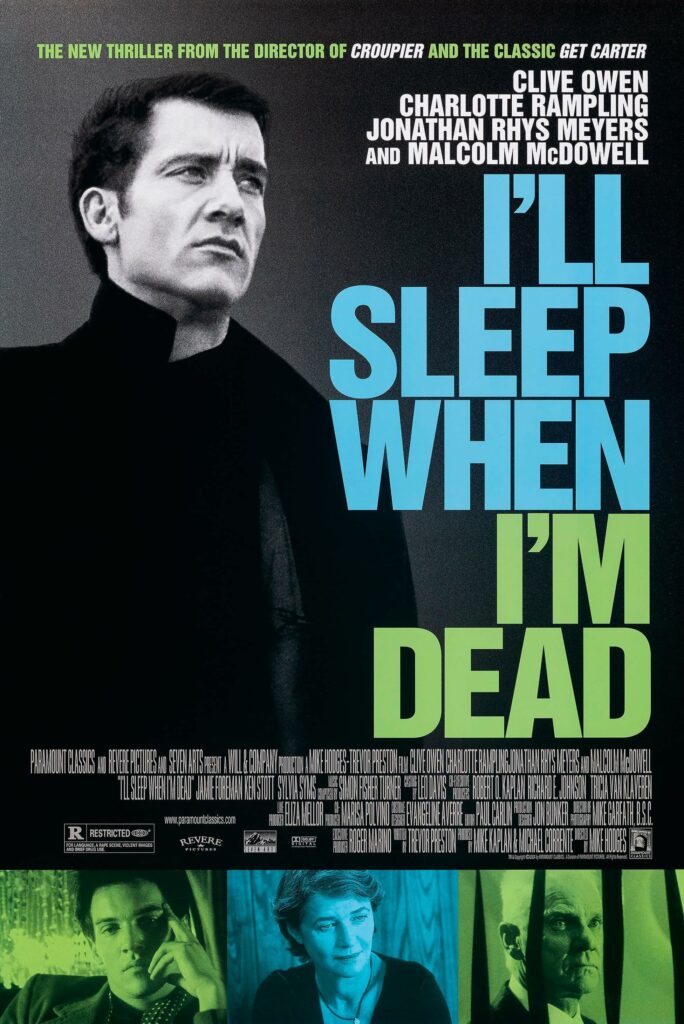Davey (Jonathan Rhys Meyers) enjoys the life of a small-time drug dealer. He often indulges in the party scene, including random hookups and occasional minor theft. One evening, as Davey is walking home, he is stalked by a mysterious man who is displeased with Davey’s recent activities. The mysterious man sexually assaults him, leaving Davey wounded and psychologically and emotionally damaged, so much so that Davey commits suicide.
At the same time, we are soon introduced to Will (Clive Owen), who works in the forest, engaging in manual labour as needed. Will enjoys keeping a low profile and prefers to receive cash payments as he was a crime boss in London. Given Will’s past life and the fact that many have died at his hands, he prefers to live a peaceful life, keeping under the radar, hoping never to be discovered. However, Will soon hears word about his brother Davey and the tragic suicide that has taken place. Will packs his things and returns to London to conduct a personal investigation into his brother’s death, including finding the man responsible and dishing out a great deal of revenge and justice.
I’ll Sleep When I’m Dead is best described as a drama and crime story directed by Mike Hodges, best known for titles such as Get Carter (1971) and Flash Gordon (1980). Given the director’s past films, he’s no stranger to crime stories in which a lead seeks out the truth from various suspects while pursuing ultimate revenge.
One of the most significant aspects of this film is the mystery and vagueness of Will’s background. As Will makes a saddening discovery about his brother, he is forced back into a world and a past that he would rather not revisit. Upon his return to London, he engages with people from this past who provide more information about Will’s gritty background. As a bonus, the more Will engages with the suspects, the closer he gets to discovering the man responsible for abusing his brother. While the film doesn’t serve as a “whodunit”, you can’t help but be hopeful that Will will be successful.
Actor Clive Owen was enjoyable as Will, especially when delivering spoken dialogue. Supporting performances from Jonathan Rhys Meyers and Charlotte Rampling are also compelling and pleasing. Pacing, however, presents the film’s biggest challenge—it’s slow and drawn-out. Even though Will is seeking answers, it sometimes feels like the film is not moving forward at all. The conclusion is satisfying but doesn’t end the movie on a high note, instead remaining consistent with the grim tone and fly-on-the-wall vibe.
Overall, as a crime drama, I’ll Sleep When I’m Dead is quite heavy, delivering some great qualities as a film. This includes the excellent performance from the lead, Clive Owen, and superb line deliveries that affirm he’s a force to be reckoned with and carries a ruthless past. The story, to begin with, is vague, but the reward to the audience as the story progresses is more intel and details. The biggest struggle is the pace, which drags slowly, only making minor progressions at a time. The finale also seems less rewarding than I had hoped. However, it’s still quite an enjoyable feature.
I’ll Sleep When I’m Dead (2003) is Now available on Blu-ray thanks to Imprint Films!
6.2/10
17th March 2024
Written by Peter Walkden




Walkden Entertainment Podcasts Are Now Available!



0 Comments